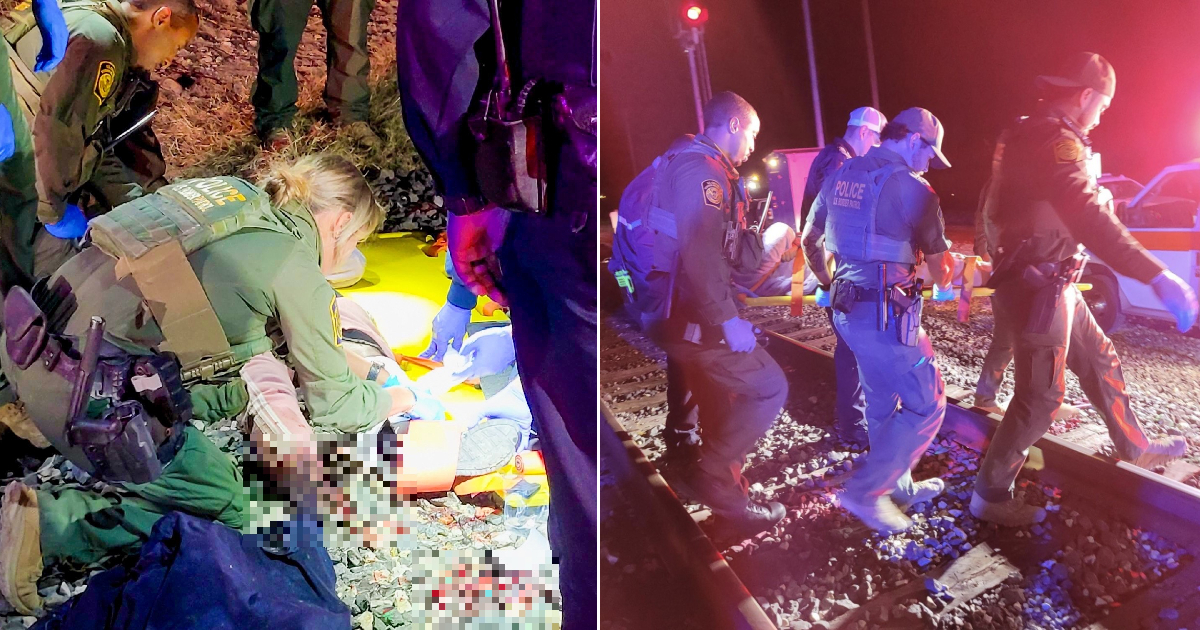
Agents of the United States Border Patrol (USBP), in the Rio Grande Valley Sector (Bravo), saved the life of a immigrant woman whose legs were amputated by a train, according to official reports.
The incident occurred on November 3, when border agency troops went to help the injured person, to whom they applied tourniquets to stop the bleeding, according to a statement by USBP.
“On November 3, USBP agents in Del Rio responded to an undocumented woman whose legs had been amputated by a train. Fortunately, our officers are trained in the use of tourniquets. “They act quickly to save lives when a tragedy occurs, but the dangers are real!” the agency reported on the X social network.
The note did not specify the current state of health of the injured immigrant, nor her identity and nationality..
The United States authorities maintain a permanent alert about the dangers that immigrants face during their journey, whether land or sea, to reach American soil.
Very often, migrants trying to cross the border from Mexico to the United States. They cross the Rio Grande and drown by the force of the current.
Others lose their lives in the desert, due to extreme temperatures, lack of food and water, or in vehicle accidents in which they are transported.
In October 2022, in the state of Veracruz, a 15-year-old migrant lost part of her leg when she fell from the train she was traveling on and was run over by it.
Recently, the United States border with Mexico was declared the most dangerous in the world, with almost 700 migrants killed on that route in 2022, considered “the most fatal year,” according to the International Organization for Migration (IOM).
Total, 686 migrants died or disappeared along that border strip, according to the data compiled in the IOM Annual Regional Summary.
In cases where the country of origin of the Dead people, the three most common were Mexico, Guatemala and Cuba.
The main causes of death were drowning (213), vehicle accidents or deaths linked to “dangerous transportation” (142), extreme environmental conditions and lack of adequate shelter, food and water (129), illness and lack of access to adequate health care (8), violence (21), accidental deaths (19) and deaths due to unknown causes (154).
What do you think?
COMMENTFiled in: